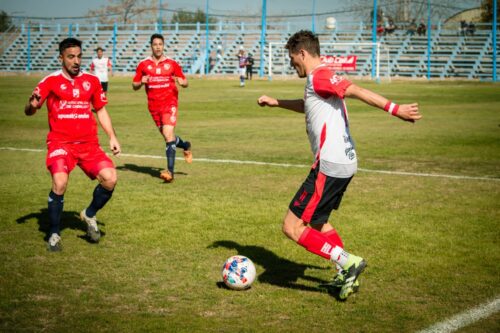10 Best Competitive Strategies for Autism: Ways to Make Challenges Fun
For many people across the autism spectrum, the idea of participating in competitive activities can seem daunting or undesirable. However, with the right competitive strategies and support, people with autism can absolutely thrive in competitions that play to their unique strengths and interests. By understanding how to mitigate challenges and maximize talents, people with autism spectrum disorder (ASD) can find rewarding ways to be competitive. Here’s how people on the spectrum can set themselves up for competitive strategies success.
 There’s nothing wrong with being competitive but like everything else you need moderation, too much of anything will be a problem. If you become too competitive you will try to make everything a challenge, a competition and eventually the people around you will just find it exhausting.
There’s nothing wrong with being competitive but like everything else you need moderation, too much of anything will be a problem. If you become too competitive you will try to make everything a challenge, a competition and eventually the people around you will just find it exhausting.
So it’s important to remember to relax once a while, and don’t take everything too seriously. You’ll find that this is good advice in general but it’s especially true with over competitiveness.
Good competitive strategies include remembering to take things easy. Don’t get stressed out if you win or lose, just try to relax and enjoy the game.
With competitive strategies, if you only apply this and have fun, you will have nothing to worry about and will enjoy the challenges a friendly competition can bring.
Here are top competitive strategies to apply to keep things fun and positive.
Top 10 Competitive Strategies to Make Game Day Rewarding
- Focus on Strengths
People with autism often possess specific abilities or affinities that lend themselves well to certain types of competition. For example, many individuals on the spectrum exhibit:– Intense interests and focus in specialized areas: Someone fascinated by transportation schedules may excel in related trivia challenges.
– Strong visual and spatial skills: A visual learner with attention to detail can leverage these talents in competitions like photography contests.
– Heightened pattern recognition abilities: This can be an advantage in math, chess, spelling bees, and other contests involving logic patterns.
– Honesty and fair-mindedness: Sports competitions that emphasize rule-following and fair play come naturally to many on the spectrum.
– Enhanced perceptual abilities: Talents like acute eyesight or hearing can aid in spotting differences in visual puzzles or music competitions.
By taking stock of their innate strengths and abilities, people with ASD can determine which kinds of competitions will allow them to shine. Make a list of all the things you excel at and brainstorm creative ways those skills could be applied competitively. Getting involved in competitions that play to your natural talents will set you up for success.
Learn more about autism and sports.
- Practice Strategically
Focused, diligent practice is key to developing competitive mastery in any endeavor. People with ASD often have the capacity for intense concentration that lends itself perfectly to dedicated practice.Try these competitive strategies while practicing:
– Spend time rigorously studying the rules and parameters of your chosen competition so you understand exactly how to excel.
– As part of competitive strategies, break down the required skills and drill the components repetitively, which can benefit autistic learners.
– Study past performances, lessons from coaches or teachers, and tips from mentors in the field. The more strategic preparation you put in, the better you will fare when it’s time to compete.
– Additionally, simulate the actual competitive strategies environment during practice to the extent possible. If the competition involves loud noise, practice tuning that out. Wear earphones or headsets if able and approved for the competition.
(Remember, different rules apply depending on what activity you are pursuing.)
If you will compete live in front of an audience, invite friends and family to watch you practice. The more you can mimic real-life conditions as one of your competitive strategies, the more comfortable and primed you will feel.
Learn more about autism and extreme focus.
- Learn Competitive Strategies
While diligent practice of your skillset is essential, it also helps tremendously to learn the competitive strategies of your competition inside and out. Study the rules, parameters, techniques, and any other competitive strategies and tips utilized by experts in the field.Read rule books, judge’s guides, coaching books, and competitor memoirs to understand exactly what it takes to maximize scores and outwit opponents. Learn the mindsets, habits, preparations, and thought processes of the most successful competitors.
There are competitive strategies lessons to glean from those who have excelled before you.
Individuals with autism often excel at comprehending complex systems, so take the time to grasp the competitive strategies realm you have selected holistically. Understanding the full context of rules, tactics, inputs, variables, and outputs will help you optimize decisions during the pressures of competition.
The more information you can absorb about successful strategies, the better equipped you will be to apply them.
Learn more about autism and discipline.
- Leverage Special Interests
An additional competitive advantage for people with autism is deep special interests. When people on the spectrum are fascinated with a topic, they will often rigorously accumulate encyclopedic knowledge on the subject over time.Tapping into those reservoirs of specialized information can provide a leg up in related competitions as part of effective competitive strategies.
For example, someone deeply interested in weather systems can try out for meteorology game shows. An avid reader of mythology might enter trivia contests on ancient gods and heroes. Space aficionados can excel at astronomy competitions.
Competitions closely aligned with existing special interests allow participants with ASD to showcase their stores of niche knowledge. Lean into your favorite subjects and see where your expertise might give you an edge as one of many competitive strategies.
Learn more about autism and motivation.
- Persist through Challenges
Competitions inevitably involve setbacks, failures, losses, and frustrations. Players get eliminated, point deductions are made, and plans go awry.People with autism can use their frequently high levels of focus, patience, and persistence to their advantage in these situations. When challenges arise, stay the course and keep working diligently to master your skills and strategies.
Motivate yourself by reviewing past wins, progress made, and the thrill inherent to your special interest area. Stay centered on the aspects of competition that bring you joy.
If certain efforts repeatedly end in disappointment, be open to trying alternates genres or formats that may be a better fit. For example, individual backgammon tournaments may prove overly stressful, but collaborating on a team eSports competition could be exhilarating.
Flexibility amidst obstacles is key, so remain calm and adaptable. With dedication and perseverance, you can overcome hurdles.
Also, if you find yourself becoming overly stressed, anxious, depressed, or angry, it might be better to pursue a different type of competition. Remember the goal is to have fun and enjoy the social interaction, not to become frustrated.
Finding happiness in something you love doing is the ultimate prize, after all.
Learn more about autism and anxiety.
- Manage Sensory Needs
For people on the autism spectrum, one key obstacle to manage in competitive environments is sensory overstimulation.Events may involve loud noise, bright lights, crowds, unfamiliar locations, intense emotions, unexpected variables, and other triggers. Make a plan to mitigate factors that may overload your senses or cause distraction.
Strategies can include:
– Wearing noise cancelling headphones, sunglasses or tinted lenses
– Using fidget toys, stress balls or other tactile tools.
– Taking scheduled quiet breaks in a separate area
– Arranging accommodations for prime seating or positioning
– Creating visual schedules, timers, or checklists to aid focus
– The more you can do to prevent sensory overload, the better you can concentrate on the actual competition.
Learn more about autism and sensory sensitivities.
- Tune Out Social Pressures
Additionally, the social aspects of competitive activities may heighten anxiety for some with ASD. Strategize ways to manage unhelpful thoughts and stay focused on your own abilities and preparation. Before entering high-pressure competitions, practice positive self-talk and self-encouragement.Remind yourself that social evaluation is not the point – you are there to do your best according to objective measures of success. Stay outwardly focused on the technical aspects of your performance rather than comparing yourself to others. With practice, the social facets often fade into the background.
On event day listen more to your own inner coach rather than outward chatter. Eliminate self-doubt and “shoulds.” Do your best to ignore judging glances, sarcastic comments, intimidation tactics, and other negative social influences. You know yourself and your abilities better than anyone.
Let your preparation and talents speak for themselves. Focus within and trust your skills. Key competitive strategies always include belief in yourself.
Learn more about autism and social awkwardness.
- Competing with Autism
Participating in competitive activities comes with unique challenges for people on the autism spectrum. But by playing to your strengths, practicing diligently, absorbing competitive strategies, leaning into special interests, persisting through setbacks, managing environments, and tuning out unhelpful social cues, you can find gratifying ways to compete.With the right fit and the right support, both children and adults with ASD can thrive competitively. There are so many outlets – from spelling bees to dance-offs to debate tournaments – that would benefit enormously from the passion and dedication people with autism can bring.
Learn more about whether to disclose you have autism.
- Find the Right Competitions
An important starting point for competitive strategies success is choosing the right competitions that complement your profile.
Consider factors like:
– Individual vs. team: Do you prefer solo contests or collaborating with others?
– Live vs. virtual: Are you more comfortable competing remotely online or do you want in-person events?
– Skill-based vs. knowledge-based: Do you want to showcase abilities or facts/data recall?
– Objective vs. subjective scoring: Do you prefer quantified performance metrics or qualitative human judging?
– Local vs. national level: Are you interested in community contests or the highest echelons?
– Small vs. large scale: Do intimate gatherings or big productions suit you better?
– Financial costs: What is affordable given your time and budget constraints?
– Travel requirements: Does the location work logistically for you.
Research the full landscape of competitions in your interest areas and evaluate options against your criteria. Finding great fits will ensure an enjoyable experience and level playing field.
Learn more about finding your third places.
- Build a Support Team
It also helps immensely to put together a support team to aid with competitive endeavors. Identify mentors like coaches, teachers, or advisors who can offer wisdom specific to your competition type.Enlist family and friends to help with logistics like travel, costs, scheduling, and moral support. If you will be competing in an academic setting, work with counselors and administrators to secure any needed accommodations. Therapists can also help devise healthy coping strategies for stress.
Having people to lean on for feedback, advice, logistics, accommodations, and encouragement can make the competitive road much smoother. Be proactive about communicating your competitive strategies needs.
Share resources with your support team about your autism profile and strengths so they understand how to best help you stay balanced and focused.
Above all else, believe in your abilities and your right to proudly engage in activities you enjoy. Competitions are meant to challenge us, build skills, provide exhilarating experiences, and connect us with fellow enthusiasts.
With the right strategies, people on the autism spectrum can find fulfilling ways to compete successfully. Set your sights on something that excites you and go for it!
Believe in yourself and don’t be afraid to proudly put your talents out there. Competitions provide opportunities for people with ASD to engage in shared interests, make connections, gain skills, and experience success and joy. You’ve got this!
Learn more about autism family support.
Autism in Adults: Living, Learning, and Overcoming Challenges for a Fulfilled Life
Autism in adults requires additional support and coping skills to achieve independence in today’s world. Learn more about ways adults can live fulfilled lives and the challenges they face.
- Autism and Independence: 7 Skills That Empower Individuals to Thrive
- Dangers of Social Media Addiction: How To Leave the Screens And Face the Real World
- Autism Volunteer Opportunities: 5 Ways Helping Others Fosters Acceptance
- 8 Heartfelt Ways Autism Emotional Support Animals Transform Lives
- Autism in the Future: Optimism for Improved Perception and Embracement
- Autism and Change of Routine: Re-establishing Normal After Trip
- Autism and AI: 7 Discoveries About the Surprise Pairing and Profound Impact
- Are You An Adult With Autism? Here Are 6 Signs
- Autism After High School: Is College the Next Step?
- Autism vs Asperger’s Syndrome: What You Need to Know
- Autism Disclosure: Is Revealing Your Disorder Helpful or Hurtful?
- Work and Autism: What Employers Should Know About Hiring People Like Me
- Drivers with Autism Can Achieve Success Behind the Wheel

 An important starting point for competitive strategies success is choosing the right competitions that complement your profile.
An important starting point for competitive strategies success is choosing the right competitions that complement your profile.